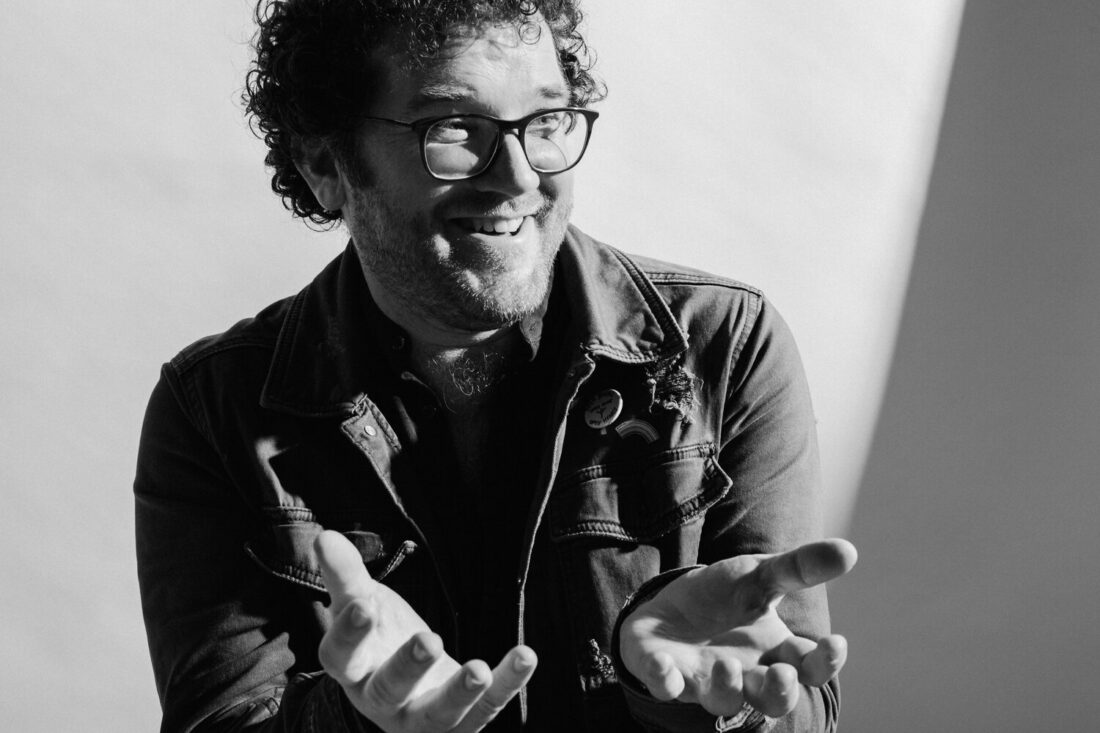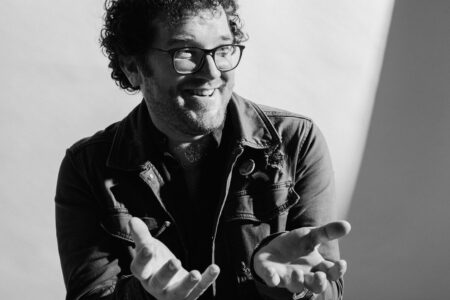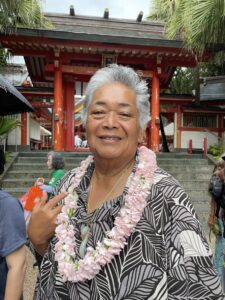Acclaimed Irish poet Pádraig Ó Tuama gives a reading at the MACC

A BBC journalist proclaimed Pádraig Ó Tuama is “probably the best public speaker I know.” Photo courtesy Trevor Brady
When Prince Charles paid a visit to Cork in Ireland in 2018, he quoted a poem by celebrated Irish poet Pádraig �” Tuama, who grew up in the city. When �” Tuama called his parents to tell them the exciting news, his father responded, “My God, your grandfather’s turning in his grave,” and his mother, equally unimpressed, said, “‘It’s been so cold here all day. I’ve been wearing an anorak (jacket) inside.'”
A highly lauded, award-winning poet and theologian with interests in conflict, language and religion, �” Tuama will present a reading in the MACC’s McCoy Studio Theater on July 30 as part of the Merwin Conservancy’s Green Room Series.
When BBC journalist William Crawley introduced �” Tuama to deliver a TEDx Talk on storytelling, Crawley praised: “He’s probably the best public speaker I know.”
Eloquent, insightful, witty and intelligent in conversation, �” Tuama talked about his latest “Kitchen Hymns” collection, his love for poetry, and as a former leader of Ireland’s oldest peace and reconciliation community, future hope for Ireland and its history of conflict.
“You can expect some poems about land, poems about mountains, poems about asking questions about meaning while walking in the land,” �” Tuama said about his Maui presentation. “You can expect some poems that are quite conversational, poems that are a bit of drama, a bit of spice. And I’m always interested in hearing what people think too. Q&A is my favorite time. Any interruptions, shout out. There isn’t enough interruption that happens during poetry readings.”
Has he had any incidents where people have interrupted him?
“I used to be a poet in residence for some conflict resolution programs in Belfast,” he answered. “One time I’d written a poem in response to something that had happened the week before, and somebody interrupted me halfway through and said, ‘It doesn’t swear enough.’ It was a great intervention. She was correct.”
�” Tuama said he hopes his poems elicit a response in the reader. “One of the things it can do is to help people listen to themselves, to think how they would have gone were they writing that line or where they’d go if they were trying to sketch that scene or imagine that dialogue or go with that description. I think literature can be three things. One, it’s a window into the life of the writer. It’s a work of art where somebody is making something that people are looking at. But it’s also got little mirrors in it where people are seeing themselves reflected, even as they’re looking through and looking at, they’re also encountering themselves. So I hope it can be all of those things.
�” Tuama’s latest collection, “Kitchen Hymns,” includes the poem, “In the Name of the Bee.”
“I asked the grasses if they believed,” it opens. “But they said believe is a poor verb. I asked the sun but it had eclipsed. I asked the tree, and it said stand. I asked the fieldmouse, it nibbled a seed in my outstretched hand. I asked the hare, but it didn’t stop. I asked the ground but it just kept spinning. Things grew, then died, then rotted, then renewed the soil. New things grew. I went to ask the bee about the future but it had gone extinct with a bead of nectar on its tongue.”
“The poem really is about the here and now,” he explained. “The opening line is asking questions about belief. But then turning to things that are tangible. One of my curiosities is how do we pay attention to the here and now because the here and now can sometimes feel like it’s just the surface. Whereas what really matters is the deep or the beyond the intangible. But I think all of those things manifest themselves in the tangible, in the present. So it’s about paying attention to what it means to be present to the present.”
�” Tuama grew up with a yearning to write.
“I have a driving need to express,” he said. “I’ve always needed to write. I wrote the first poem when I was 11, and there was something of such relief and seeing something take shape on the page. I’ve continued to write poetry ever since.”
A review of “Kitchen Hymns” said it “confronts the effects of sectarianism and colonialism on spirituality and languages of belief, the transcendence of eroticism, bereavement during COVID, and more.”
“There are plenty of questions in it to do with belief,” he noted. “There is plenty to do with questions of eroticism, and then there’s a huge thread in ‘Kitchen Hymns’ about paying attention to what is simply here, what is here in terms of the birds, what is here also in terms of the rage that we feel inside ourselves when we have questions we can’t answer.”
Asked about Ireland and the history of sectarian conflict, he said he feels hopeful. “When you look at British-Irish history over 700 years, what’s happened in the last 30 years should give us all hope for what is possible. The Good Friday Agreement is a peace agreement where the British government admitted to hundreds of years of colonization, admitted to the fact that successive governments from London had successfully failed time and time again to do anything that was particularly good for the island of Ireland. It’s a slow process. You can’t undo hundreds of years of pain in 30 years. But the murder rate has gone way down. It will take another 50 years, probably. That which was said would be unthinkable has become not only thinkable, but enacted every day.”
The Merwin Conservancy’s Green Room Series will present a reading and talk with �” Tuama at 7 p.m. July 30 at the McCoy Studio Theater. Tickets are $37 and $22 for students with ID.




